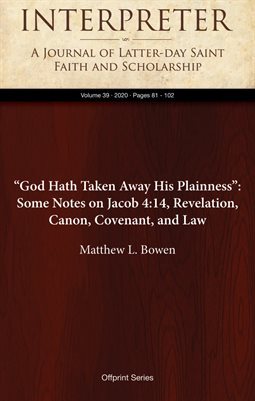

DEBUG




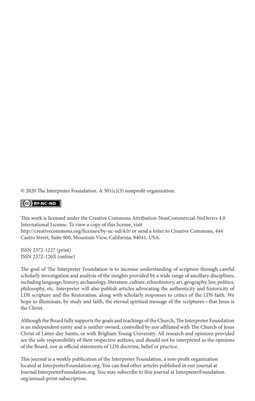
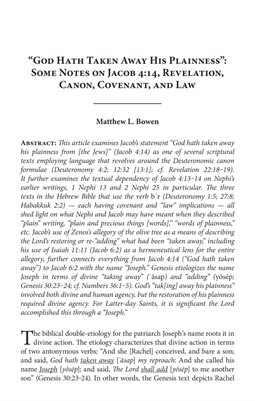
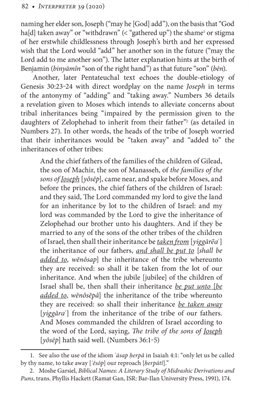
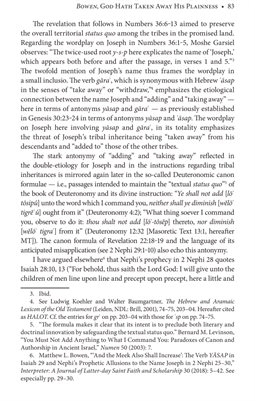
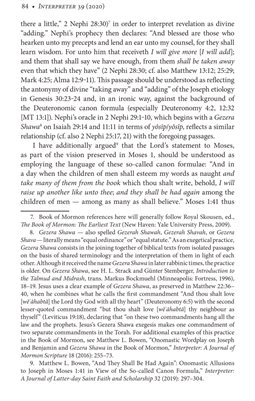
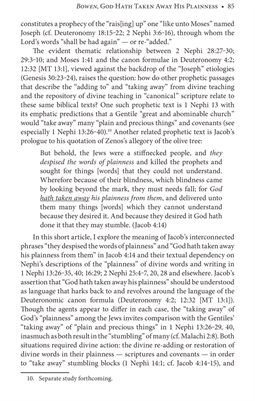
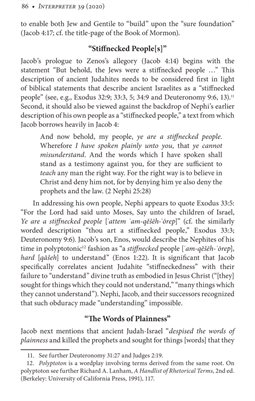
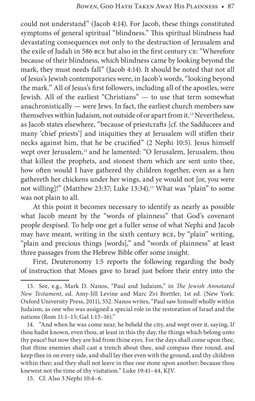
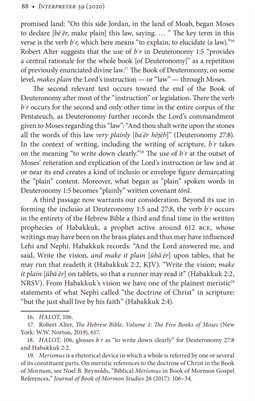
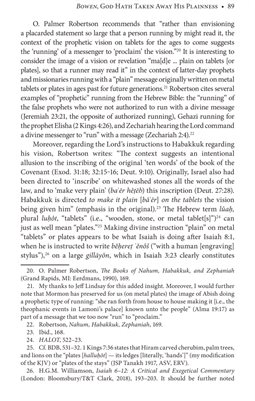
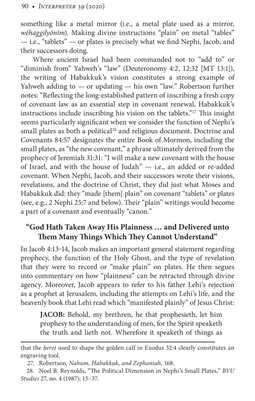
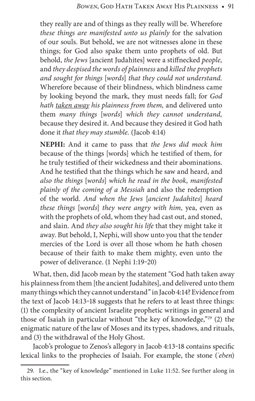
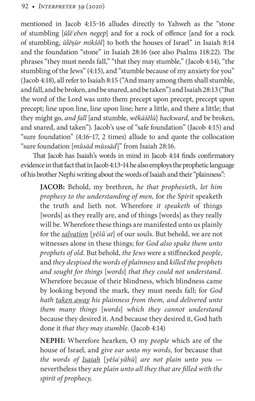
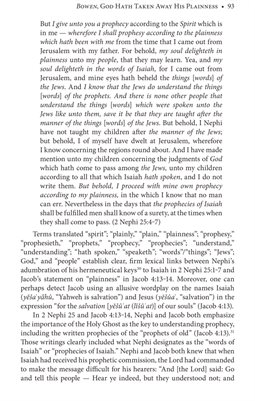
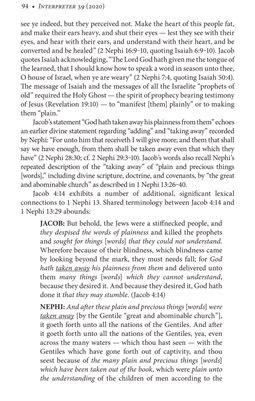
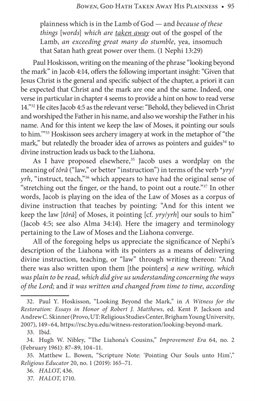
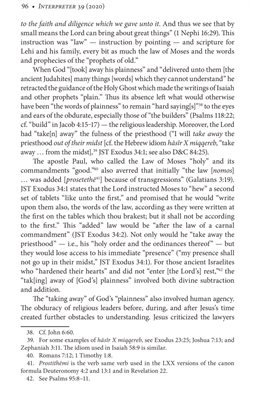
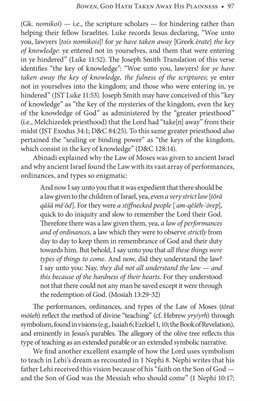
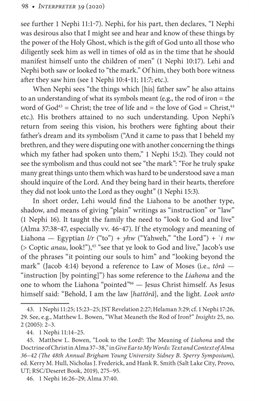
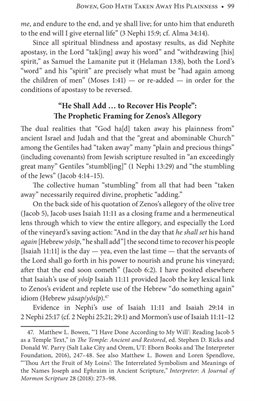
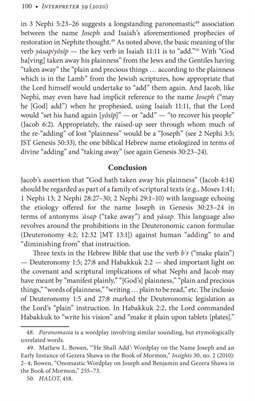
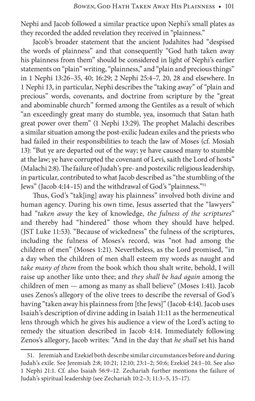
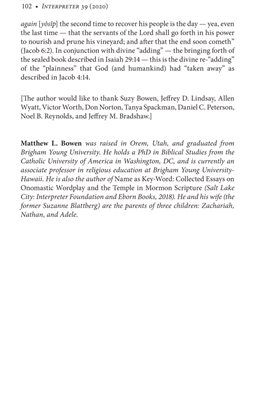





Another great way to enjoy this content.
Learn More

Abstract: This article examines Jacob’s statement “God hath taken away his plainness from [the Jews]” (Jacob 4:14) as one of several scriptural texts employing language that revolves around the Deuteronomic canon formulae. It further examines the textual dependency of Jacob 4:13‒14 on Nephi’s earlier writings, 1 Nephi 13 and 2 Nephi 25 in particular. The three texts in the Hebrew Bible that use the verb bʾr (Deuteronomy 1:5; 27:8; Habakkuk 2:2) — each having covenant and “law” implications — all shed light on what Nephi and Jacob may have meant when they described “plain” writing, “plain and precious things [words],” “words of plainness,” etc. Jacob’s use of Zenos’s allegory of the olive tree as a means of describing the Lord’s restoring or re-“adding” what had been “taken away,” including his use of Isaiah 11:11 (Jacob 6:2) as a hermeneutical lens for the entire allegory, further connects everything from Jacob 4:14 to Jacob 6:2 with the name “Joseph.”












Email sharing only available when logged in.
Log In or Sign Up now.
Choose a size:
Copy Code: